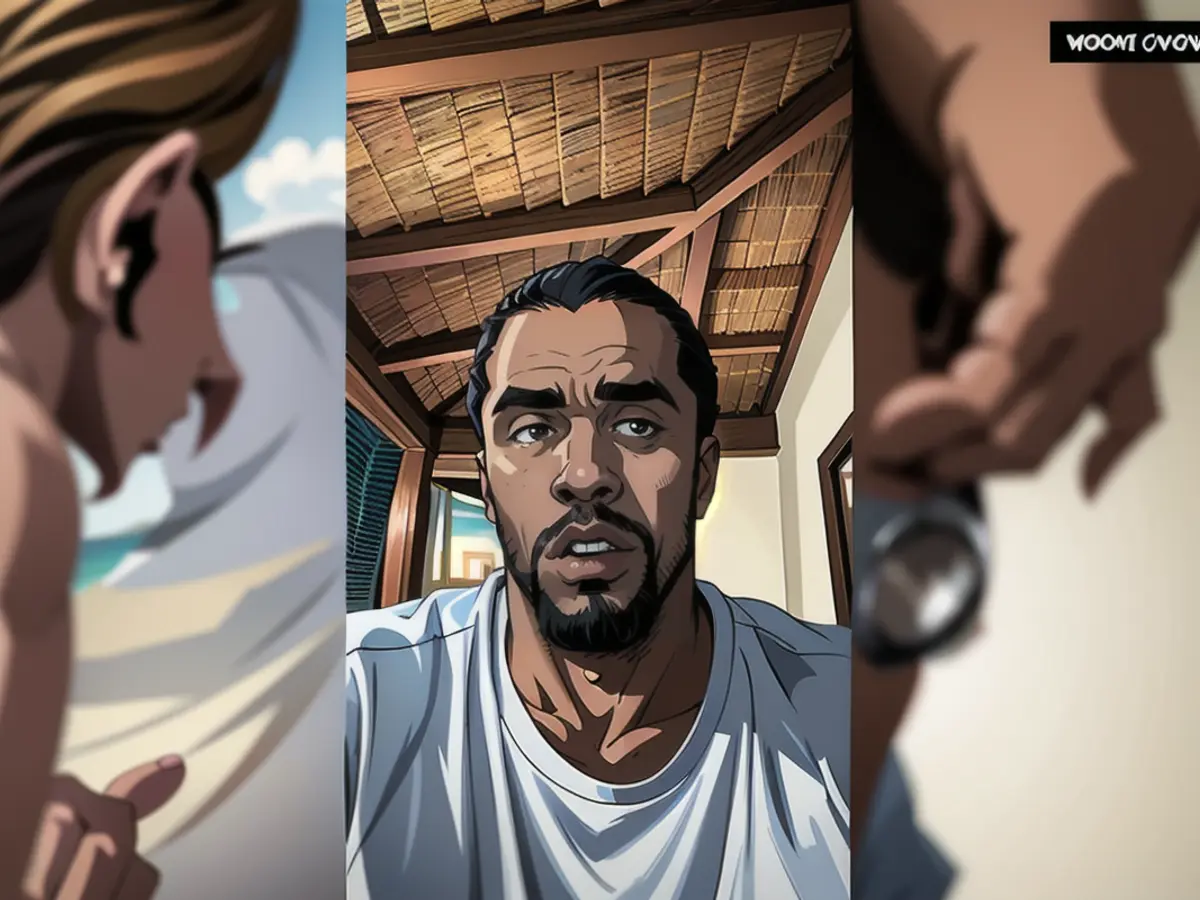Opinion: Diddy's apology to Cassie Ventura seems insincere.
Following the settlement, Combs' attorneys asserted his innocence. Ben Brafman, a lawyer representing Combs, told CNN in a statement in November that: "A decision to settle a lawsuit, particularly in 2023, is in no way an admission of wrongdoing." He also mentioned that "Combs' decision to settle the lawsuit does not in any way undermine his flat-out denial of the claims." Brafman wished Trina Ventura "the best."
Recently, a video has emerged, and in light of this irrefutable evidence, Combs has issued a public apology. He said in an Instagram video statement: "It's so tough to reflect on the worst times in your life, but sometimes you have to do that." He admitted, "I'm f**ked up – I hit rock bottom – but I make no excuses. My behavior in that video is inexcusable."
What's striking is that Combs could have taken responsibility for his actions in the past, when Cassie first made her claim. Instead, he accused her of blackmail. There have been five additional lawsuits against Combs since November, with accusations ranging from sexual abuse to sex trafficking, revenge porn, and gang rape. He has denied all of the allegations, labeling them as a "witch hunt," a "money grab," "individuals looking for a quick payday," "baseless," "a transparent attempt to garner headlines," and "complete lies."
In December, Combs posted to Instagram:
"Enough is enough. For the last couple of weeks, I have sat silently and watched people try to assassinate my character, destroy my reputation, and my legacy." He claimed, "Sickening allegations have been made against me by individuals looking for a quick payday." He stated, "I did not do any of the awful things being alleged." He also declared, "I will fight for my name, my family, and for the truth."
Now, at least part of the truth has surfaced, and Combs is expressing a different perspective. Despite previously denying any wrongdoing and smearing his various accusers as liars seeking a quick payday, he is acknowledging that at least one accuser was telling the truth.
This event raises questions about Combs's sincerity in expressing remorse. If he hadn't shared the video, would he have ever admitted to his actions? How genuine could his apology be? And how many abusers employ the Combs strategy of denying responsibility and slandering their accusers as greedy liars?
Additionally, this comes as the US faces funding cuts for domestic violence resources, shelters, and services. The US Supreme Court is also considering a case asking whether individuals under domestic violence restraining orders should be permitted to possess guns. Over one-third of female murder victims in 2021 were killed by their intimate partners (for men, this statistic is just 6%).
In the best-case scenario, the validation of Cassie's abuse claims could encourage other victims to step forward. Combs' continuous denials and derogatory labels for his accusers could teach a significant lesson: Not all accusations of wrongdoing are false, and many denials are also untrue.
In the American criminal justice system, the accused are presumed innocent until proven guilty. However, in the court of public opinion, a different perspective holds true: as individuals, we need to consider allegations of abuse and other serious misconduct without assuming that the word of a man always outweighs that of a woman because of his wealth or prominence. But it cannot be easy for Cassie to witness a video depicting what is likely the worst moment of her life. Furthermore, it may push other women who have survived abuse back into a painful emotional state.
It's crucial that people don't have to witness a video like this to believe women's claims. After all, most domestic violence incidents occur in the privacy of the home and are not caught on camera - they are typically perpetrated by intimate partners.
This case provides an important lesson. Blank denials are not always true. Even men with considerable power can engage in unacceptable behavior. And although it's commendable when people admit to their misdeeds and hold themselves responsible, their apologies lose credibility when they admit to their actions for the first time only after being caught.

Read also:
- This will change in December
- Dikes withstand water masses so far - Scholz holds out the prospect of help
- Fireworks and parties ring in 2024 - turn of the year overshadowed by conflicts
- Attacks on ships in the Red Sea: shipping companies avoid important trade route
In light of the public apology, some people may question the sincerity of Combs' remorse, as he could have admitted to his actions earlier instead of denying them and accusing his accusers of seeking financial gains. Many individuals facing accusations of wrongdoing employ a similar strategy, denying responsibility and labeling their accusers as liars for financial gain.
Despite Combs' public apology, some may still hold strong opinions about the validity of the initial allegations against him, shaped by their own beliefs and experiences with similar situations.
Source: edition.cnn.com







